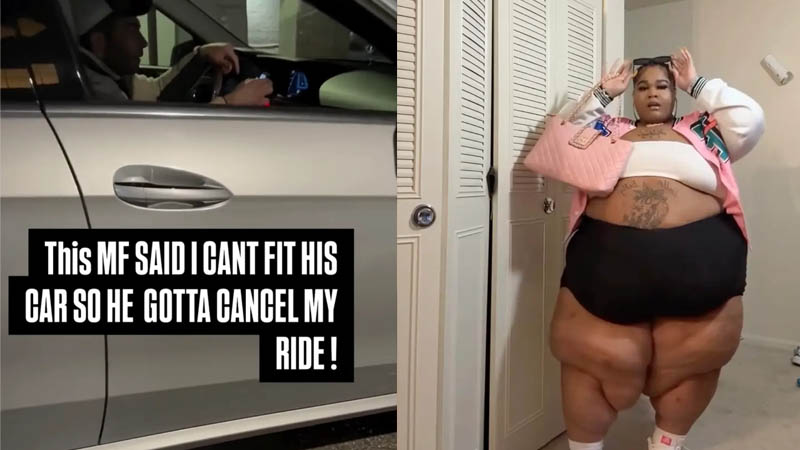
Rapper Sues Lyft After Driver Cancels Ride Over Her Size
Share0A plus-sized rapper, Dank Demoss, whose real name is Dajua Blanding, is taking legal action against ride-hailing service Lyft after a driver canceled her ride due to her body size. The incident has ignited discussions about weight discrimination and the responsibilities of transportation companies in preventing such biases.
Dank Demoss, a 36-year-old from Detroit, shared her distressing experience on Instagram, where she posted a video capturing the interaction with the Lyft driver. In the footage, the driver can be heard saying, “I’ve got no space, my car is small.” Undeterred, Blanding responded, “I can fit in this car,” asserting that she has previously traveled in smaller vehicles without issue.
Despite her confidence, the driver proceeded to cancel the ride, explaining, “Believe me, you can’t. Believe me. I’m sorry. I’m going to cancel it, you’re not going to be charged. You need to order a bigger car.” Blanding, who previously weighed 180kg and claimed to have lost 18kg in December, felt deeply hurt by the encounter. “AM I WRONG? Lyft what have you all got to say about this driver (who) discriminated against me? I just feel like you all treat big people like s***. Like we don’t belong here,” she wrote in her Instagram post.
In response to the incident, Blanding has decided to file a lawsuit against Lyft, accusing the company of allowing discrimination to occur on its platform. Her attorney, Jon Marko, emphasized the severity of the situation by comparing it to racial and religious discrimination. “It would be no different than a driver pulling up and saying ‘I don’t want to have Black people in my car’ or ‘I don’t want to have Christians in my car or Muslims in my car’. Under the law, it’s the same,” Marko told Fox2.
Another attorney representing Blanding, Zach Runyan, highlighted the dangers of such discrimination. “Refusing someone transportation based on their weight is not only illegal, but dangerous. Imagine the consequences if Ms. Blanding were unable to seek shelter after the driver left her stranded. This could have ended even worse than it did,” Runyan added.
Currently, Michigan stands as the only state in the US where weight discrimination is explicitly illegal, providing a legal foundation for Blanding’s case. This lawsuit could set a significant precedent for how ride-hailing services address and prevent discrimination based on body size.
Lyft responded to the lawsuit by condemning all forms of discrimination. “Lyft unequivocally condemns all forms of discrimination—we believe in a community where everyone is treated with equal respect and mutual kindness,” the company stated. They further emphasized, “Our community guidelines and terms of service explicitly prohibit harassment or discrimination.”
Blanding’s case underscores the ongoing struggle against body shaming and discrimination in everyday services. As public awareness grows, the outcome of her lawsuit may influence policies and practices within the transportation industry, ensuring more inclusive and respectful treatment for all passengers, regardless of size.
The rapper’s brave decision to speak out highlights the personal toll of discrimination and the importance of holding companies accountable. As the legal battle unfolds, it remains to be seen how Lyft and similar services will adapt to prevent such incidents in the future, fostering a more equitable environment for all users.
